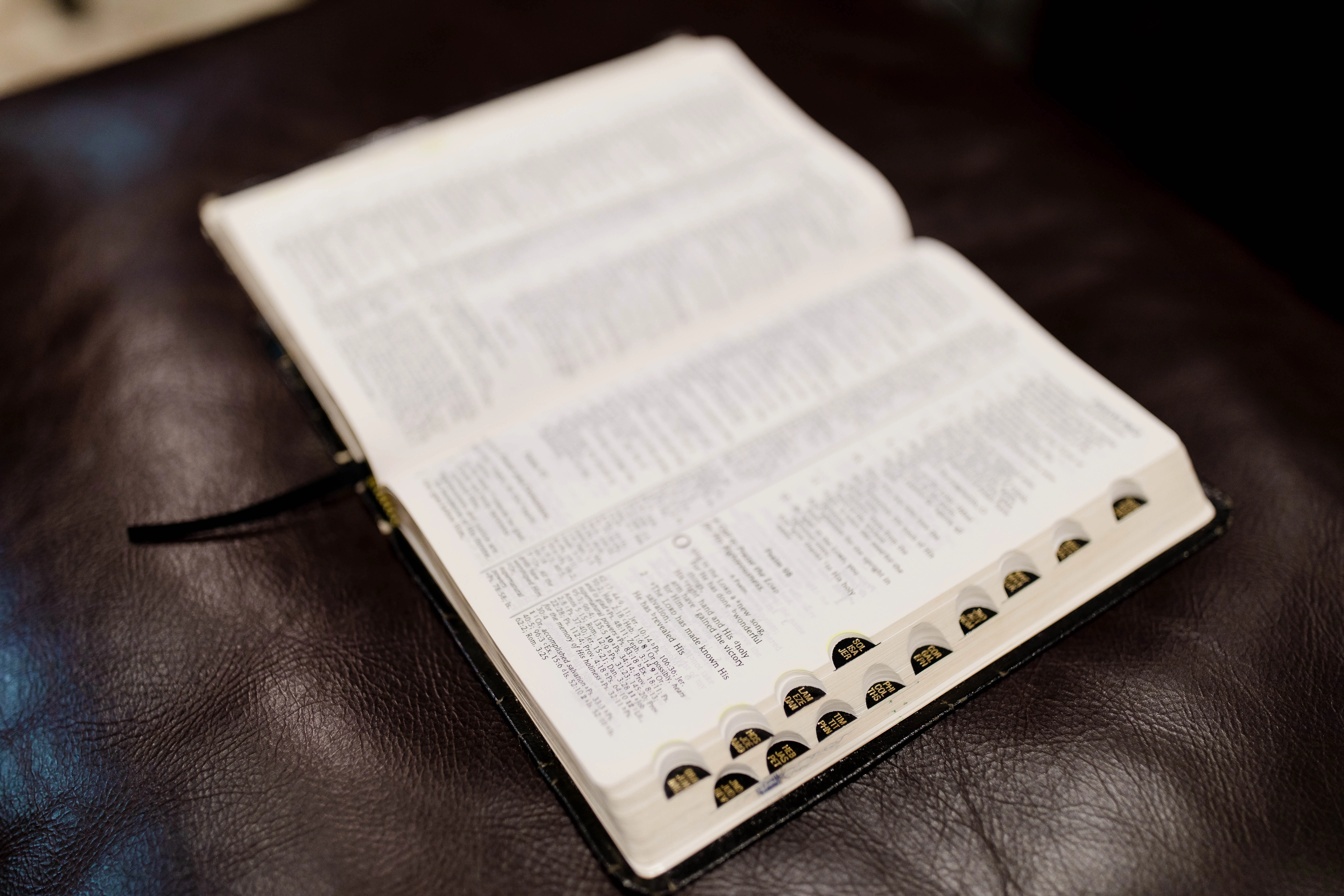The Bible: God’s Own Playbook

Last week, we considered the chief end of man, to glorify and enjoy God, but how do we get there? Consider Shorter Catechism 2:
Q. 2. What rule hath God given to direct us how we may glorify and enjoy him?
A. The Word of God, which is contained in the Scriptures of the Old and New Testaments, is the only rule to direct us how we may glorify and enjoy him.
In other words, God hasn’t simply given us a goal with no instructions. He’s told us how to achieve that goal. There are a couple of different claims here.
First, the catechism is suggesting that Scripture is sufficient for this purpose. “For this purpose” is an important qualification because we’re not saying that Scripture is sufficient for training electricians. In fact, you should be wary of any preacher that has a “biblical” opinion on such things. Instead, God gave us Scripture with the aim of teaching us how to glorify and enjoy him. This is the purpose that Scripture gives for itself.
…that which we have seen and heard we proclaim also to you, so that you too may have fellowship with us; and indeed our fellowship is with the Father and with his Son Jesus Christ. And we are writing these things so that our joy may be complete. – 1 John 1:3-4
All Scripture is breathed out by God and profitable for teaching, for reproof, for correction, and for training in righteousness, that the man of God may be complete, equipped for every good work. – 2 Timothy 3:16-17
Second, the catechism says that Scripture is the only rule to direct us how to glorify and enjoy God. This is really just a consequence of Scripture’s sufficiency. Of course, that doesn’t mean we can’t explain and apply Scripture. Christ gave apostles, prophets, evangelists, and pastor-teachers for this very purpose (Eph 4:10). In fact, the catechism itself is an example of the church explaining and applying Scripture! But all of our teaching and application must flow from and be grounded on Scripture. In the context in which the catechism was written, they were particularly concerned with some of the teachings of the Roman Catholic Church. Rome teaches something called supererogation. It’s the idea that there are super-works beyond what is required in Scripture that people can do for extra benefits. For example, Rome says that if you die wearing the brown scapular (a necklace with an itchy, uncomfortable patch attached) then you’re guaranteed salvation. This is blatantly unbiblical and exactly the kind of thing that the catechism is trying to guard against. Less obvious examples you might hear include extra giving, certain devotional practices, and engagement in social issues. But the catechism is saying that only God can tell us what glorifies him. (By the way, this is related to the Second Commandment we talked about a couple weeks ago.)
Finally, the catechism tells us exactly what the Word of God is, namely, the Old and New Testaments. There are two errors to avoid here. On one hand, some would like to expand Scripture beyond these bounds by adding books. Others do the opposite by undermining the authority of certain books. There are several ways we could talk about this, but the catechism cites Ephesians 2:20 which says the church is “built on the foundation of the apostles and prophets.” In other words, we can know what books are Scripture because of the witness of God’s ordained Scripture writers. The Old Testament books are those which are written or approved by the prophets. In particular, we know that Ezra, an inspired prophet of God, was the man who finally compiled the Old Testament as we know it. If you read the Gospels with an eye toward this question, you’ll notice that this is the collection of books that Jesus himself uses. There are many examples, but one in particular is illuminating. In Matthew 23:35, Jesus talks about the history of God’s people from Abel to Zechariah. Besides the providential fact that the English alphabet runs from A to Z, Jesus is referencing two events at the beginning and end of the Hebrew Bible.1 The New Testament books are those written or approved by the apostles. So, for example, while the book of 1 Clement is very good, it was written after the death of the apostles, so we don’t consider it Scripture.
In summary, the catechism is really giving a statement of sola Scripture, the idea that Scripture is the only, infallible rule of faith and life. If you want to read more, you can look at the first chapter of the Westminster Confession of Faith for a fuller picture. Another succinct statement of the same principle is found in the EPC Essentials of our Faith:
All Scripture is self-attesting and being Truth, requires our unreserved submission in all areas of life. The infallible Word of God, the 66 books of the Old and New Testaments, is a complete and unified witness to God’s redemptive acts culminating in the incarnation of the Living Word, the Lord Jesus Christ. The Bible, uniquely and fully inspired by the Holy Spirit, is the supreme and final authority on all matters on which it speaks.
Updates
-
Sunday night at 5 PM, we’ll be having another Parents’ Fellowship at the Newman’s house.
-
Women will meet for a few minutes after worship to discuss lunch for the 17th, then the regular meeting is Thursday, August 22, at 6:30 PM.
-
Remember Ron Horgan will be joining us next week for a Saturday seminar and lunch, then he will help us in worship by preaching and administering the Lord’s Supper.
Your friend in Christ,
Reid
-
Abel is found in Genesis, and Zechariah in 2 Chronicles. In English, our Old Testaments have been rearranged for various reasons, but these are the first and last books in the Hebrew ordering. ↩︎
